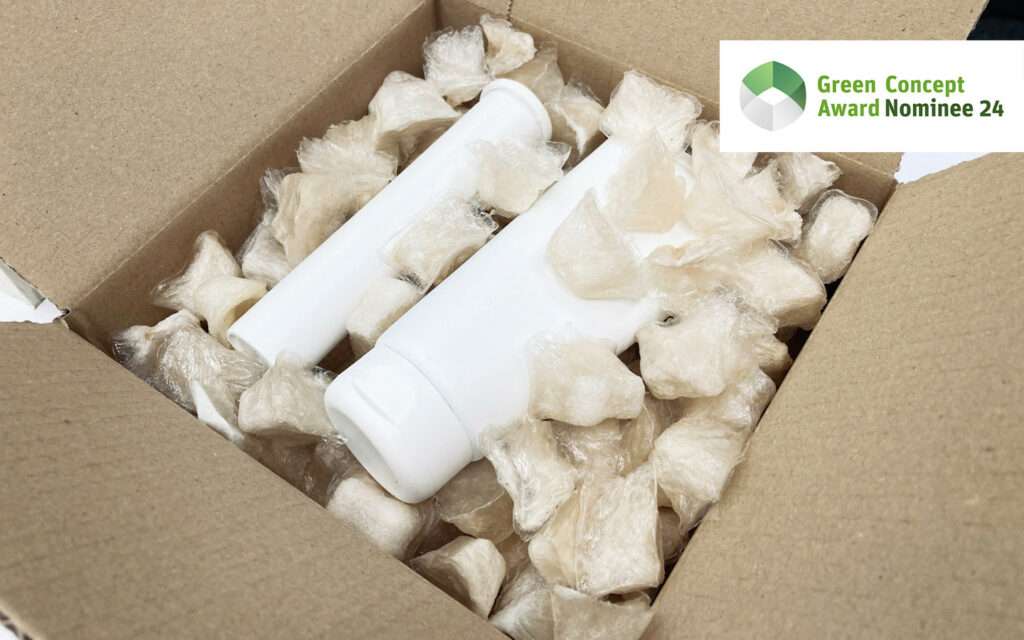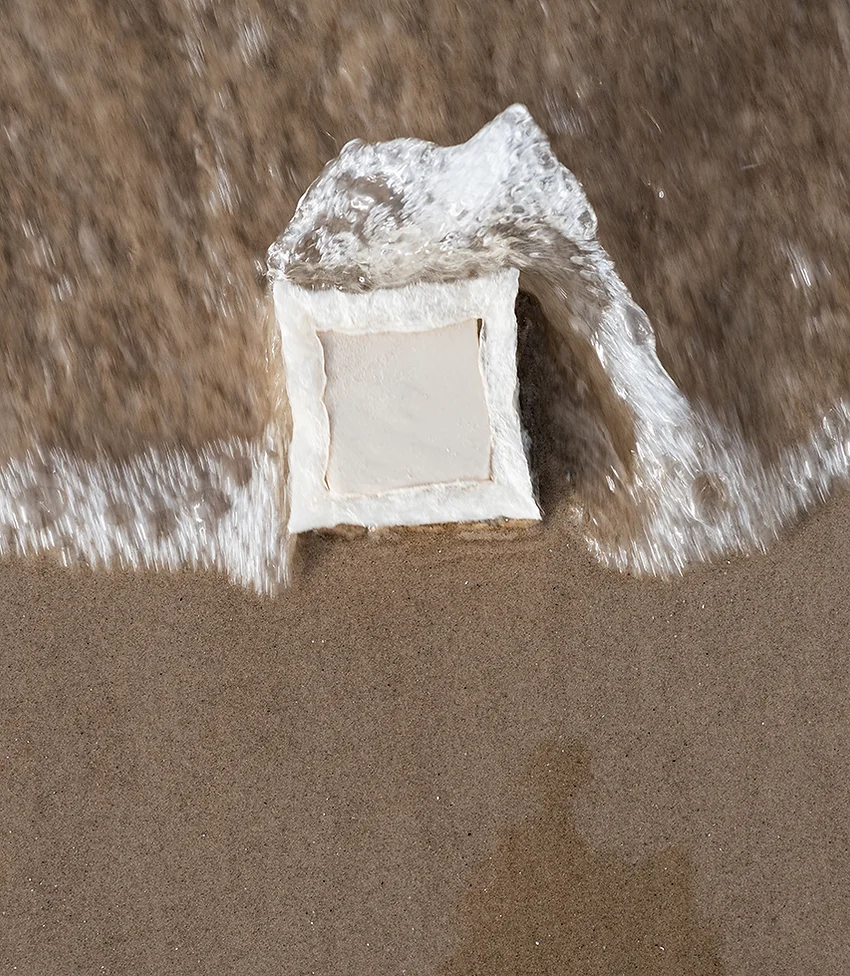
This project is featured as part of the D5 Digital Design Week: AI & Sustainability. To learn more, click here.
In response to the growing problem of synthetic waste, SEAWEED FOAM, a Lithuanian start-up founded by Austeja Platukyte, is offering an innovative solution that’s both eco-friendly and sustainable. Their unique bio-foam material is derived from a special seaweed processing method, making it a home-compostable alternative to traditional packaging.
The world faces a mounting crisis in synthetic waste, especially with packaging that uses non-biodegradable materials. Products made from durable plastics, foam, and other synthetics contribute significantly to pollution and harm the environment. Traditional biodegradable packaging, often made from corn starch, is also problematic, as it competes with food resources, contributing to food insecurity. While 811 million people still suffer from hunger globally, large amounts of food are diverted to produce packaging materials.

Moreover, a study by Yale University revealed a growing concern: climate-change-related depression affects up to 70% of the U.S. population, particularly among youth. The overwhelming presence of waste and pollution only adds to the mental and emotional strain, creating a call for alternative solutions to reduce environmental impact.
SEAWEED FOAM offers a solution to this environmental challenge. The bio-foam packaging is made from only two natural ingredients—seaweed and water—making it fully compostable. After use, the packaging can easily be composted at home or used as fertilizer, ensuring it does not contribute to the waste cycle. If discarded as waste, the material naturally decomposes without harming the environment, becoming part of nature again.
The algae-based material used in SEAWEED FOAM doesn’t compete with valuable farmland for food production. It is derived exclusively from renewable marine resources and algal waste in coastal regions, making it a sustainable and ethical option. Unlike materials like corn starch, which takes up space needed for food production, seaweed grows naturally in oceans, and its extraction doesn’t interfere with food supply chains.
By switching to algae-based packaging, consumers can rest easy knowing their purchases won’t contribute to global pollution. The environmental benefits are clear: the packaging is entirely organic, compostable, and biodegradable. Moreover, using such sustainable products helps alleviate feelings of guilt related to environmental damage, improving psychological well-being.
This benefits the planet and provides emotional value to consumers, aligning with a growing desire to make ethical, environmentally conscious choices. Reducing solid waste pollution through algae-based packaging is a step toward creating a more sustainable, responsible world.
Austeja Platukyte, the visionary founder of SEAWEED FOAM, is dedicated to research and development in sustainable materials. Her goal is to revolutionize packaging by reducing the reliance on harmful synthetic materials and creating solutions that integrate seamlessly into nature’s lifecycle.
By choosing SEAWEED FOAM, consumers contribute to a cleaner planet while also benefiting from packaging that is as gentle on the earth as it is on the eyes. This pioneering product is paving the way for a new era in biodegradable packaging that can be composted in your home, supporting a truly circular economy.

SEAWEED FOAM is a newly established Lithuanian start-up that uses a special seaweed processing method to create a bio-foam material that can be used for a new type of home-compostable packaging product.
Image credit: Courtesy of the designer.










